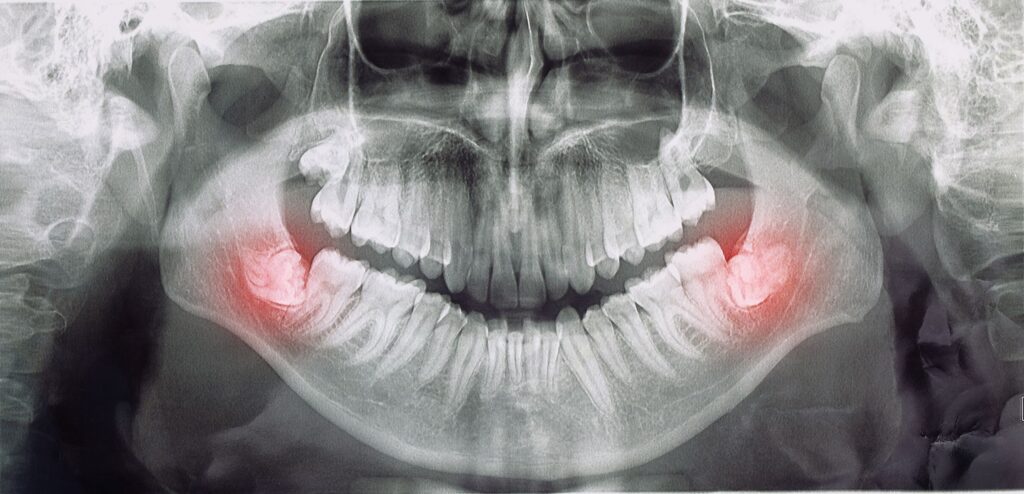
If you’re a young adult and you’ve noticed that the back of your mouth or jaw has been feeling particularly sore lately, you might be growing wisdom teeth. These third molars typically arrive years after all your other adult teeth have grown in, usually between the ages of 17 to 25. Unfortunately, they tend to cause issues like aches, overcrowding, infections, or become impacted when they erupt, so they’re often extracted before they can become problematic.
It’s normal to have questions about these chompers, like how many you have and why they’re there. Continue reading to learn more about it!
Why Do We Have Wisdom Teeth?
In our current culture today, wisdom teeth are so frequently removed during the teenage years that many consider it somewhat of a rite of passage from childhood into adulthood. But our ancestors likely developed them out of necessity.
It’s believed ancient humans lived on a diet of raw plants, hard nuts, seeds, and tough meats, which would have been incredibly hard on their teeth. If they wore down, damaged, or lost their molars before reaching adulthood, they might not be able to eat. These late arrivals may have evolved to replace any that had been injured or dislodged, allowing them to continue biting and chewing food. But today, they’re considered a vestigial feature that’s no longer necessary for survival.
Does Everyone Have Wisdom Teeth?
Most people have four wisdom teeth; one for each quadrant of the mouth. However, not everyone develops all of them. Some only have one, two, or three, while others are lucky enough not to grow any at all! Although the exact reason for this is unknown, it seems that genetics plays a part. If either of your parents is missing any of their last molars, you may also be more likely to grow fewer than four.
Will My Wisdom Teeth Require Extraction?
Are you wondering how many wisdom teeth you have and whether they’ll need to be removed? Only your dentist can take X-rays to see beneath the surface of your gums to let you know for certain how many there are and whether they might become troublesome. In some cases, these third molars grow in straight and there’s enough room in the jawbone to house them comfortably, so they don’t cause issues. However, if your dentist suspects they will be problematic, they’ll likely recommend an extraction.
If you’re uncertain whether the ache in your jaw is due to wisdom teeth, you can learn more by scheduling a consultation with your dentist!
Meet the Author
Dr. Hasnain Shinwari has over 15 years of experience helping enhance patients’ lives by improving their dental health. He earned his dental degree from the University of Peshawar in Pakistan, and then received advanced training in Oral and Maxillofacial Surgery at Boston University. Today, he’s a board-certified oral surgeon and offers various complex procedures to meet your unique needs, including wisdom tooth extractions. He also offers multiple options for sedation to help you feel calm and comfortable throughout your visit. You can request an appointment on the website or by calling (703) 574-4717.

